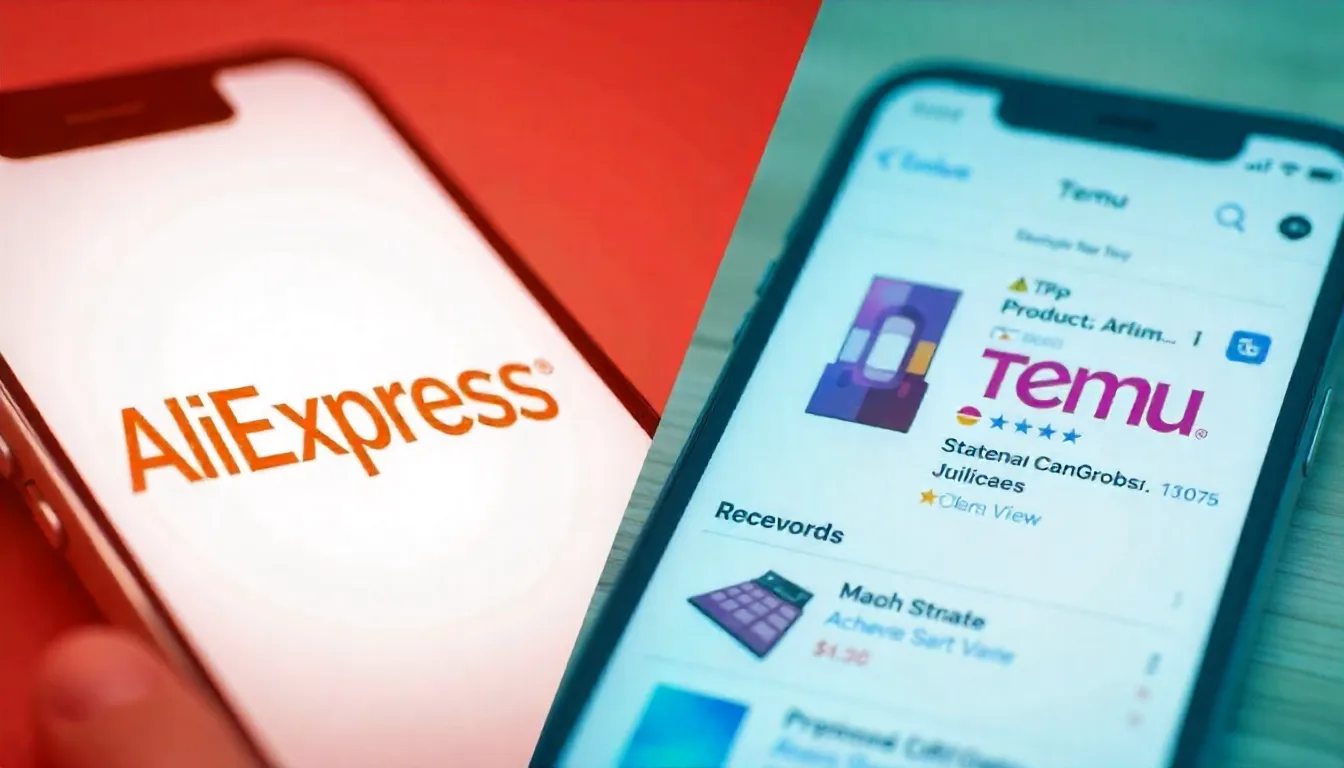AliExpress and Temu are two major global online marketplaces that have gained massive popularity among budget-conscious shoppers. With Temu’s recent rise in the U.S. and AliExpress’s established international presence, many consumers are asking: Is AliExpress like Temu?
This article breaks down everything you need to know — from pricing and shipping to product quality and customer experience — to help you decide which platform best suits your shopping preferences.
Introduction
Online shopping has evolved rapidly in recent years, with platforms like AliExpress and Temu revolutionizing how people buy affordable products from around the world. Both cater to consumers seeking inexpensive items, often shipped directly from manufacturers in China. But while they may seem similar at first glance, there are significant differences in their business models, delivery times, return policies, and overall customer satisfaction.
This guide provides a side-by-side comparison of AliExpress vs. Temu, revealing what makes each unique and helping you make smarter online shopping decisions in 2025.
What Is AliExpress?
AliExpress, founded in 2010, is a global e-commerce marketplace owned by the Alibaba Group. It connects international buyers with Chinese sellers offering millions of products across categories like electronics, fashion, beauty, and home goods.
AliExpress operates as a marketplace model, meaning it acts as a middleman between buyers and third-party sellers. Customers can browse and buy from numerous vendors, often at discounted rates due to factory-direct pricing.
Key Features of AliExpress:
- Massive product catalog (over 100 million listings)
- Worldwide shipping
- Buyer protection and dispute resolution system
- Payment options include credit/debit cards and PayPal (in select countries)
- Known for very low prices and frequent sales events
What Is Temu?
Temu launched in 2022 and is owned by PDD Holdings, the parent company of the popular Chinese e-commerce platform Pinduoduo. Unlike AliExpress, Temu directly manages its logistics and works closely with suppliers to offer faster shipping and better quality control.
Temu is designed to attract Western audiences with a modern app experience, strong marketing campaigns, and ultra-low prices. Its slogan “Shop Like a Billionaire” highlights its strategy to make luxury-style shopping affordable for everyone.
Key Features of Temu:
- Fast and affordable shipping to the U.S., Canada, and other countries
- Direct collaboration with manufacturers for price control
- Frequent coupons and flash deals
- Free returns within a set period (usually 90 days)
- Modern, easy-to-use app interface
Is AliExpress Like Temu?
In short — yes and no. AliExpress and Temu share several similarities in offering cheap products from Chinese manufacturers, but they differ in how they manage logistics, pricing, and customer satisfaction.
Let’s explore these similarities and differences in detail:
| Feature | AliExpress | Temu |
|---|---|---|
| Founded | 2010 | 2022 |
| Parent Company | Alibaba Group | PDD Holdings |
| Business Model | Marketplace (third-party sellers) | Direct supply and fulfillment |
| Shipping Speed | 10–30 days | 7–15 days |
| Free Returns | Rare | Common |
| App Design | Basic and functional | Modern and user-friendly |
| Target Audience | Global (especially Asia, Europe) | Primarily North America |
| Pricing Strategy | Factory-direct discounts | Subsidized prices |
| Customer Support | Varies by seller | Centralized, faster response |
Pricing Comparison
Both AliExpress and Temu are known for their affordable prices, but Temu often undercuts AliExpress thanks to its subsidized pricing model. Temu works directly with manufacturers, allowing them to sell products at near-wholesale rates.
For example:
- A smartphone case that costs $3 on AliExpress might be $1.50 on Temu.
- Women’s fashion items, beauty tools, and home gadgets also tend to be cheaper on Temu.
However, AliExpress offers more variety and often includes premium versions of similar items, giving shoppers more flexibility depending on their budget and preferences.
Product Quality
Product quality is a major concern when shopping on both platforms. Since both rely heavily on Chinese manufacturers, quality can vary widely.
- AliExpress: Because it hosts multiple sellers, quality depends on the seller’s reputation and reviews. High-rated stores usually deliver better products.
- Temu: Maintains tighter control over product selection and quality checks before listing items, which often results in fewer complaints.
In 2025, Temu’s focus on customer satisfaction and reliable packaging gives it a slight edge in terms of overall product quality.
Shipping and Delivery Times
Shipping is one of the biggest differentiators between AliExpress and Temu.
- AliExpress: Standard shipping takes 15–30 days, though premium shipping options (AliExpress Standard Shipping or DHL) can shorten the wait.
- Temu: Typically delivers in 7–15 days, thanks to better logistics partnerships and warehouses located closer to key markets.
Temu also frequently offers free shipping, while AliExpress may charge depending on the seller and destination.
Return and Refund Policies
Temu’s free return policy is a game changer. Most items can be returned within 90 days at no extra cost, making it highly appealing to first-time users.
AliExpress, on the other hand, leaves return policies to the discretion of each seller. Some may offer free returns, while others require buyers to pay for international shipping, which can be expensive.
If customer-friendly policies are a priority, Temu wins this category.
User Experience and App Interface
Temu’s mobile app is sleek, colorful, and tailored for Western users, making browsing and shopping intuitive. Gamified features like daily spin rewards and referral bonuses add engagement.
AliExpress’s app is more functional but less interactive. It offers a massive catalog but can feel cluttered and overwhelming for new users.
In 2025, Temu’s user interface and mobile experience are considered superior for convenience and fun.
Trust and Safety
AliExpress has been around for over a decade and has built a relatively strong reputation for reliability. It offers buyer protection that guarantees refunds for undelivered or damaged items.
Temu is newer but growing rapidly. Some users still express concerns about data privacy and product authenticity, though most reviews are positive.
In terms of safety, both platforms are legitimate, but AliExpress’s long history gives it a trust advantage.
Which One Should You Choose in 2025?
The choice between AliExpress and Temu depends on your priorities:
- Choose AliExpress if: you value product variety, international shipping, and trusted sellers.
- Choose Temu if: you prefer faster shipping, lower prices, and an easy return process.
For frequent shoppers looking for affordable goods and modern shopping experiences, Temu may feel more convenient. However, AliExpress remains unbeatable for niche products and wholesale buyers.
Final Verdict
So, is AliExpress like Temu? They share the same DNA but have different personalities. Both platforms aim to make online shopping affordable and accessible, yet their strategies diverge in user experience, logistics, and product sourcing.
In 2025, Temu continues to challenge AliExpress’s dominance by offering faster deliveries and improved buyer protection, while AliExpress holds its ground with global reach and unmatched product diversity.
Before choosing, consider what matters most — price, speed, or variety — and let that guide your online shopping decision.
Conclusion
AliExpress and Temu are redefining budget e-commerce for a new generation of online shoppers. While Temu represents the future of fast, app-driven shopping, AliExpress remains a dependable marketplace for millions worldwide.
As competition heats up, both platforms are expected to innovate further — giving consumers even more options and better deals in the years ahead.


Leave a Reply